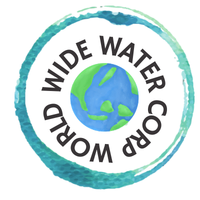What can we do individually for our community?
Individuals can play a vital role in water conservation and making a positive impact in their own communities. Here are some ways individuals can contribute:
-
Conserve Water at Home: Practice water-saving habits such as taking shorter showers, fixing leaks promptly, and using water-efficient appliances and fixtures. Install low-flow showerheads and faucets, and consider collecting rainwater for outdoor use.
-
Raise Awareness: Spread the word about the importance of water conservation and the need for clean water access. Educate your friends, family, and community members about water-saving practices and the impact of water scarcity on both local and global levels.
-
Participate in Community Programs: Get involved in local initiatives that promote water conservation and access to clean water. Volunteer for community cleanup events, participate in water monitoring programs, or join local water conservation organizations to contribute your time and skills.
-
Support Sustainable Agriculture: Choose locally sourced and organic food options that prioritize sustainable water practices in farming. Support farmers who use responsible irrigation methods and promote efficient water use in agriculture.
-
Reduce Plastic Waste: Plastics contribute to pollution in water bodies, so reducing plastic waste can indirectly help protect water resources. Opt for reusable water bottles and shopping bags, avoid single-use plastics, and recycle properly.
-
Advocate for Change: Engage with local policymakers and advocate for water conservation and sustainable water management practices. Attend community meetings, write to your elected officials, and support policies that prioritize clean water access and environmental protection.
-
Practice Responsible Outdoor Water Use: Be mindful of water usage in outdoor activities, such as watering lawns and gardens. Follow local watering restrictions, utilize water-efficient irrigation systems, and consider planting native and drought-resistant plants that require less water.
-
Get Involved in Water-related Campaigns: Join campaigns and initiatives focused on water conservation, sanitation, and access to clean water. Support organizations and charities that work towards these goals through donations, fundraising, or volunteering.
-
Educate Yourself: Stay informed about water-related issues, innovations, and solutions. Read books, articles, and research papers on water conservation, climate change, and sustainable water practices. By expanding your knowledge, you can become a better advocate and make informed choices.
-
Lead by Example: Be a role model in your community by practicing water-saving behaviors and sharing your knowledge and experiences with others. Encourage your friends, family, and neighbors to adopt water-conserving habits and join you in making a positive impact.
Remember, even small individual actions can collectively make a significant difference in conserving water and protecting this precious resource in your community.




